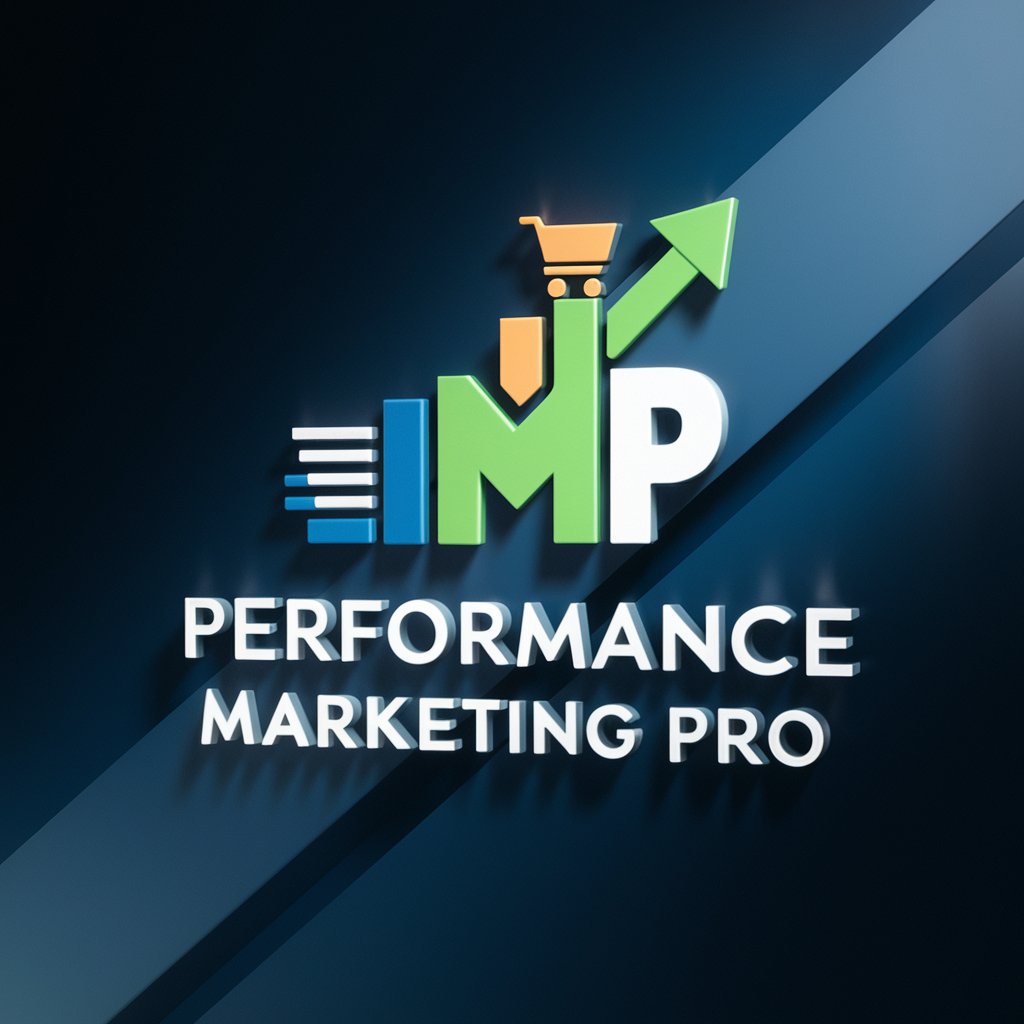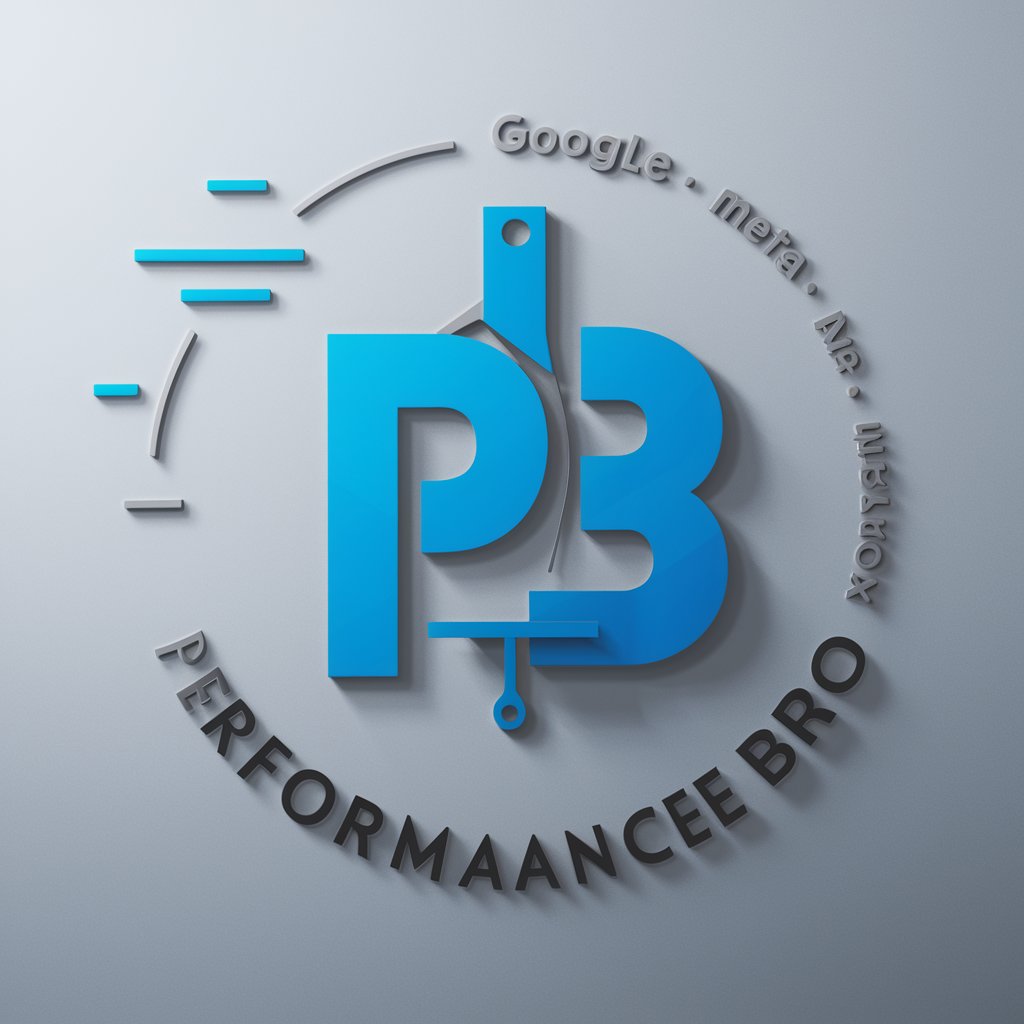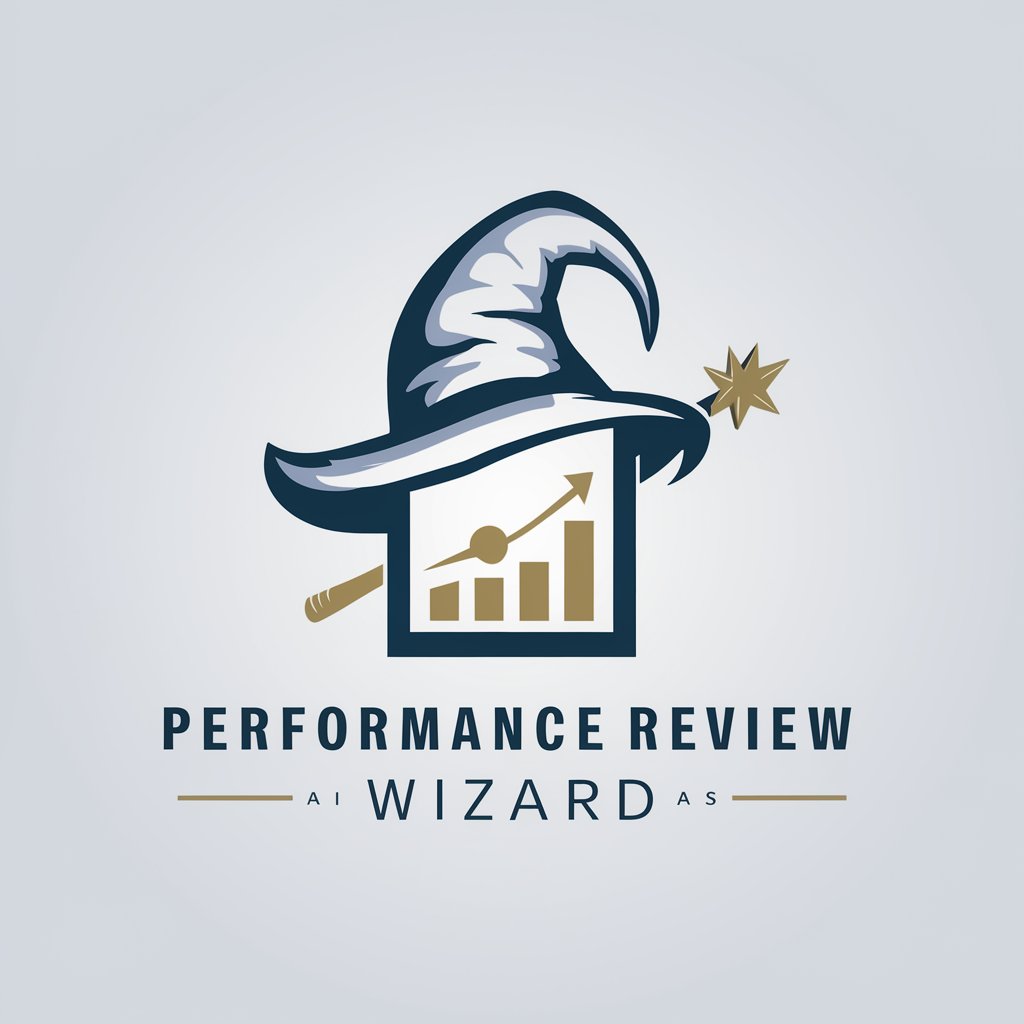Performance Marketing - Results-Driven Marketing Tool

Welcome! Ready to enhance your marketing strategy?
Empower Your Marketing with AI
How can I optimize my PPC campaigns for better ROI?
What are the best strategies for increasing eCommerce conversion rates?
Can you suggest effective email marketing tactics for a D2C brand?
What key metrics should I track to measure my marketing performance?
Get Embed Code
Understanding Performance Marketing
Performance Marketing is a comprehensive approach within digital marketing, where advertisers pay only when a specific action is completed, such as a sale, click, or lead. This model is designed to ensure that marketing efforts are directly tied to measurable results, making it a highly efficient and ROI-focused strategy. For example, an eCommerce brand might employ performance marketing strategies to drive sales through pay-per-click (PPC) advertising, affiliate marketing, and social media campaigns. In this scenario, the brand would allocate its budget towards campaigns that directly lead to conversions, optimizing ad spend based on performance metrics like conversion rate and cost-per-acquisition (CPA). Powered by ChatGPT-4o。

Core Functions of Performance Marketing
Targeted Advertising
Example
Using programmatic ads to reach a specific audience based on demographics, interests, and behavior.
Scenario
An online fashion retailer uses targeted Facebook and Instagram ads to reach women aged 18-35 interested in sustainable fashion, leading to increased website traffic and sales.
Affiliate Marketing
Example
Brands collaborate with individuals or companies to promote products in exchange for a commission on sales.
Scenario
A health supplements company partners with fitness influencers to promote their products. The influencers share custom discount codes, and the company tracks sales generated through these codes, paying commissions for each sale.
Conversion Rate Optimization (CRO)
Example
Improving website elements to increase the percentage of visitors who complete a desired action.
Scenario
An online bookstore tests different landing page designs to identify which version leads to higher sales of a new release. They use A/B testing tools to compare conversion rates and optimize the page accordingly.
Data-Driven Marketing
Example
Utilizing analytics and data to make informed decisions on marketing strategies and campaign adjustments.
Scenario
A technology gadget retailer analyzes data from Google Analytics and their CRM to understand customer purchase behavior and refine their email marketing campaigns for better engagement and conversions.
Who Benefits from Performance Marketing?
eCommerce Businesses
Online retailers and D2C brands stand to gain significantly from performance marketing through direct sales tracking, targeted advertising, and affiliate programs that drive revenue on a pay-for-performance basis.
Startups and SMBs
Startups and small-to-medium-sized businesses benefit from performance marketing's cost-effective nature, enabling them to compete with larger companies by efficiently allocating limited marketing budgets towards strategies with measurable returns.
B2B Companies
B2B companies use performance marketing to generate leads and nurture them through the sales funnel. The ability to track performance and optimize campaigns for conversions is crucial for long sales cycles common in B2B industries.

How to Use Performance Marketing Effectively
Start with a Free Trial
Begin by visiting yeschat.ai to explore its capabilities through a free trial that requires no sign-up or ChatGPT Plus subscription.
Define Your Goals
Identify and articulate clear, measurable objectives for your campaigns, such as increased sales, lead generation, or improved engagement.
Select Your Channels
Choose the most relevant marketing channels for your target audience, including social media, search engines, and email marketing.
Monitor and Analyze
Use analytics tools to track your campaign's performance against your objectives, and adjust your strategies as needed.
Optimize Continuously
Leverage A/B testing and other optimization techniques to refine your approach, focusing on the most effective tactics and creatives.
Try other advanced and practical GPTs
Performance Review Assistant
Empower reviews with AI precision.

Performance Professor
Elevating Teaching with AI Insights

Performance Writer
AI-powered Professional Performance Reviews

A9 Performance
Enhance Your Projects with AI-Powered Insights

Performance Bro
Optimize your digital ads with AI-driven insights

Performance Analytics
Elevate Your Game with AI

Performance Review Wizard
AI-powered, personalized performance reviews.

Image Generator 🌟 refined & visionary
Crafting Your Imagination with AI

Image Generator 1.0
Turn ideas into visuals with AI.

Realistic Image Generator
Bringing visions to life with AI-powered realism

Professor Next
Elevate Your Code with AI

Next Scene
Enhance Your Production Skills with AI

In-depth Q&A on Performance Marketing
What is Performance Marketing?
Performance Marketing is a comprehensive approach to online and digital marketing where businesses only pay when specific actions, such as a sale or lead, are completed. It encompasses a wide range of activities including affiliate marketing, PPC, social media ads, and SEO.
How do you measure success in Performance Marketing?
Success in Performance Marketing is measured through key performance indicators (KPIs) like return on ad spend (ROAS), conversion rates, click-through rates (CTR), and cost per acquisition (CPA). These metrics help determine the efficiency and effectiveness of campaigns.
Can small businesses benefit from Performance Marketing?
Yes, small businesses can greatly benefit from Performance Marketing due to its cost-effectiveness and ability to scale. By paying only for results, small businesses can control their advertising spend and focus on channels that bring the best ROI.
What are the best practices for optimizing Performance Marketing campaigns?
Best practices include setting clear goals, understanding your audience, choosing the right channels, using data-driven insights for decision-making, and continuously testing and refining your strategies.
How important is creative content in Performance Marketing?
Creative content is crucial in Performance Marketing as it directly influences engagement and conversion rates. High-quality, relevant, and compelling content can significantly improve the effectiveness of ads and promotions.
